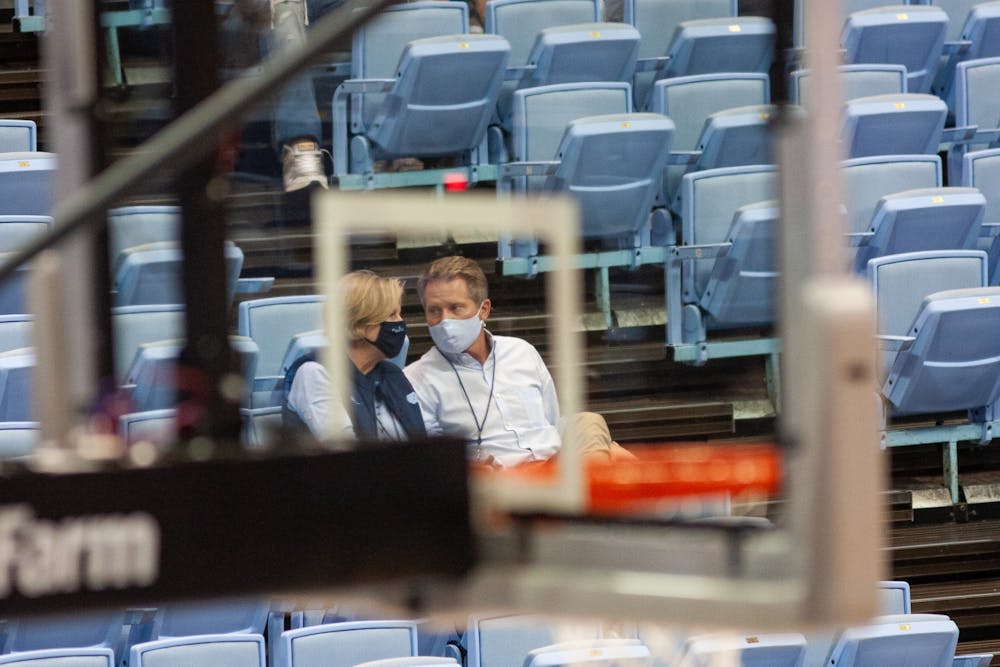Kevin Guskiewicz was named UNC's 12th chancellor on Dec. 13, 2019. One year later, University Desk editor Maddie Ellis spoke with Guskiewicz about his first year in the role, his biggest lessons and what's next.
This interview has been edited for content and clarity.
The Daily Tar Heel: What are the biggest takeaways from your first year as chancellor?
Kevin Guskiewicz: To expect the unexpected, that's for sure. We started off with the launch of our strategic plan, Carolina Next: Innovations for Public Good, right at the end of January. And we were so excited about implementing the plan, and we have, but certainly we lost a little bit of momentum given the COVID-19 crisis we were faced with ... There was a lot that happened there during a very short time, but I'm happy we've gotten to the end of this fall semester, and I think we have a good plan in place for the spring.
DTH: What was the biggest challenge in your first year as chancellor?
KG: It's obviously COVID-19 and just the uncertainty about it. We were sitting here back in mid-March, not knowing how long it was going to last. I would guess that most of us didn't expect it to last as long as it has, but we certainly have learned a lot through that. And again, as I said I'm proud of the fact that Carolina is one of the leading institutions in the country that's helping to solve this grand challenge, the biggest challenge perhaps of our lifetime ...
And I think just the fact that we've been able to still deliver a really quality education, despite these challenges, and we've been able to connect our students, who are studying remotely, back to campus in the ways that we have.
DTH: What are you hoping to accomplish next year? What does success in the spring look like to you?
KG: I think we, just like we've listened to our community and learned from the fall semester, we did many things right, but clearly some things didn't go well. We're moving forward with increased community input and transparency and we've made the changes that are necessary in terms of the robust testing program that will be in place, the further de-densification of the residence halls with about 3,500 students on campus. It's going to take a commitment of everyone in our community to ensure our success and that means abiding to the COVID-19 community standards that are in place and are unchanged for the most part from what we had in place for the fall, with the exception of the testing requirements.




